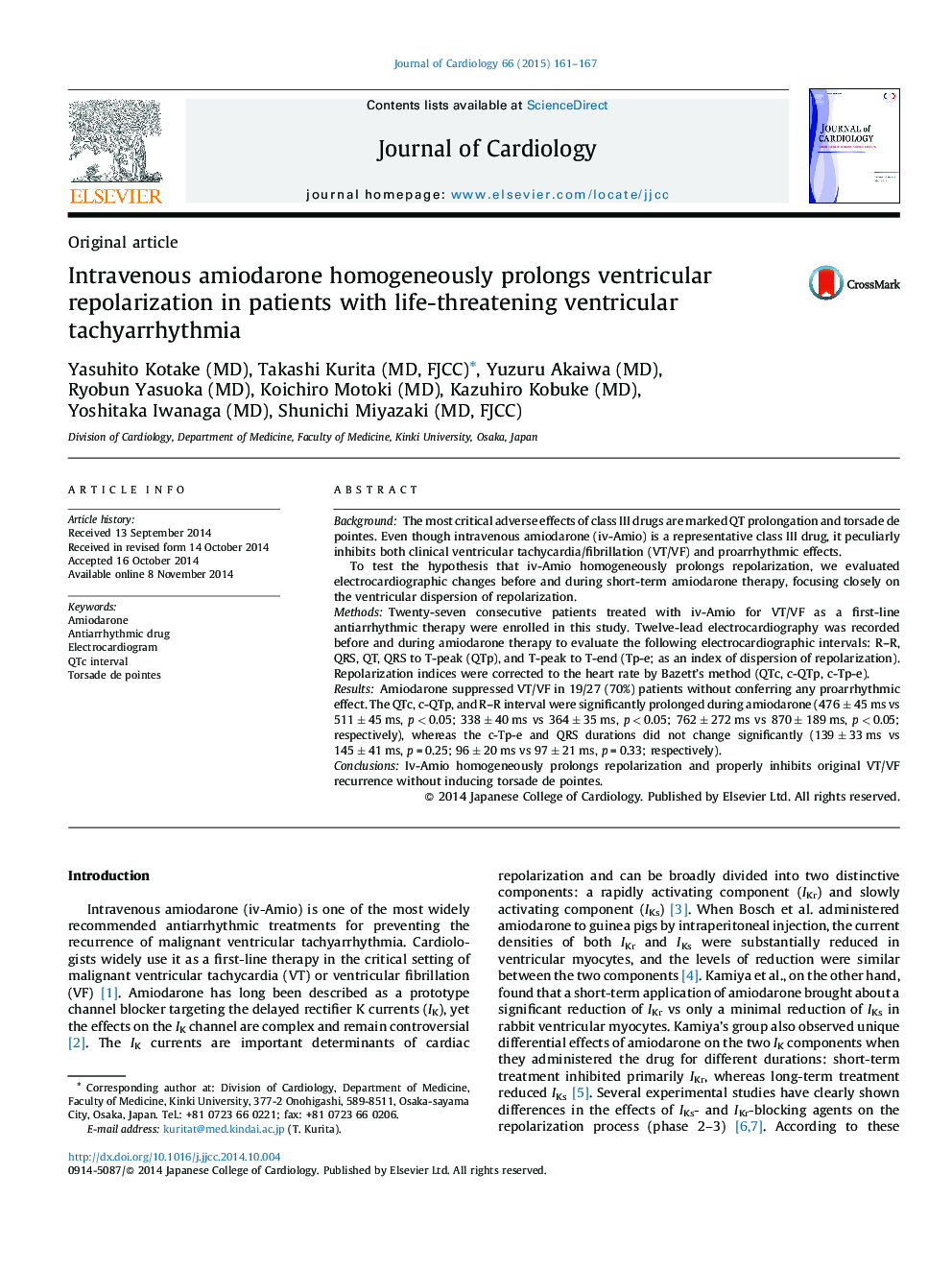| Article ID | Journal | Published Year | Pages | File Type |
|---|---|---|---|---|
| 2962949 | Journal of Cardiology | 2015 | 7 Pages |
BackgroundThe most critical adverse effects of class III drugs are marked QT prolongation and torsade de pointes. Even though intravenous amiodarone (iv-Amio) is a representative class III drug, it peculiarly inhibits both clinical ventricular tachycardia/fibrillation (VT/VF) and proarrhythmic effects.To test the hypothesis that iv-Amio homogeneously prolongs repolarization, we evaluated electrocardiographic changes before and during short-term amiodarone therapy, focusing closely on the ventricular dispersion of repolarization.MethodsTwenty-seven consecutive patients treated with iv-Amio for VT/VF as a first-line antiarrhythmic therapy were enrolled in this study. Twelve-lead electrocardiography was recorded before and during amiodarone therapy to evaluate the following electrocardiographic intervals: R–R, QRS, QT, QRS to T-peak (QTp), and T-peak to T-end (Tp-e; as an index of dispersion of repolarization). Repolarization indices were corrected to the heart rate by Bazett's method (QTc, c-QTp, c-Tp-e).ResultsAmiodarone suppressed VT/VF in 19/27 (70%) patients without conferring any proarrhythmic effect. The QTc, c-QTp, and R–R interval were significantly prolonged during amiodarone (476 ± 45 ms vs 511 ± 45 ms, p < 0.05; 338 ± 40 ms vs 364 ± 35 ms, p < 0.05; 762 ± 272 ms vs 870 ± 189 ms, p < 0.05; respectively), whereas the c-Tp-e and QRS durations did not change significantly (139 ± 33 ms vs 145 ± 41 ms, p = 0.25; 96 ± 20 ms vs 97 ± 21 ms, p = 0.33; respectively).ConclusionsIv-Amio homogeneously prolongs repolarization and properly inhibits original VT/VF recurrence without inducing torsade de pointes.
